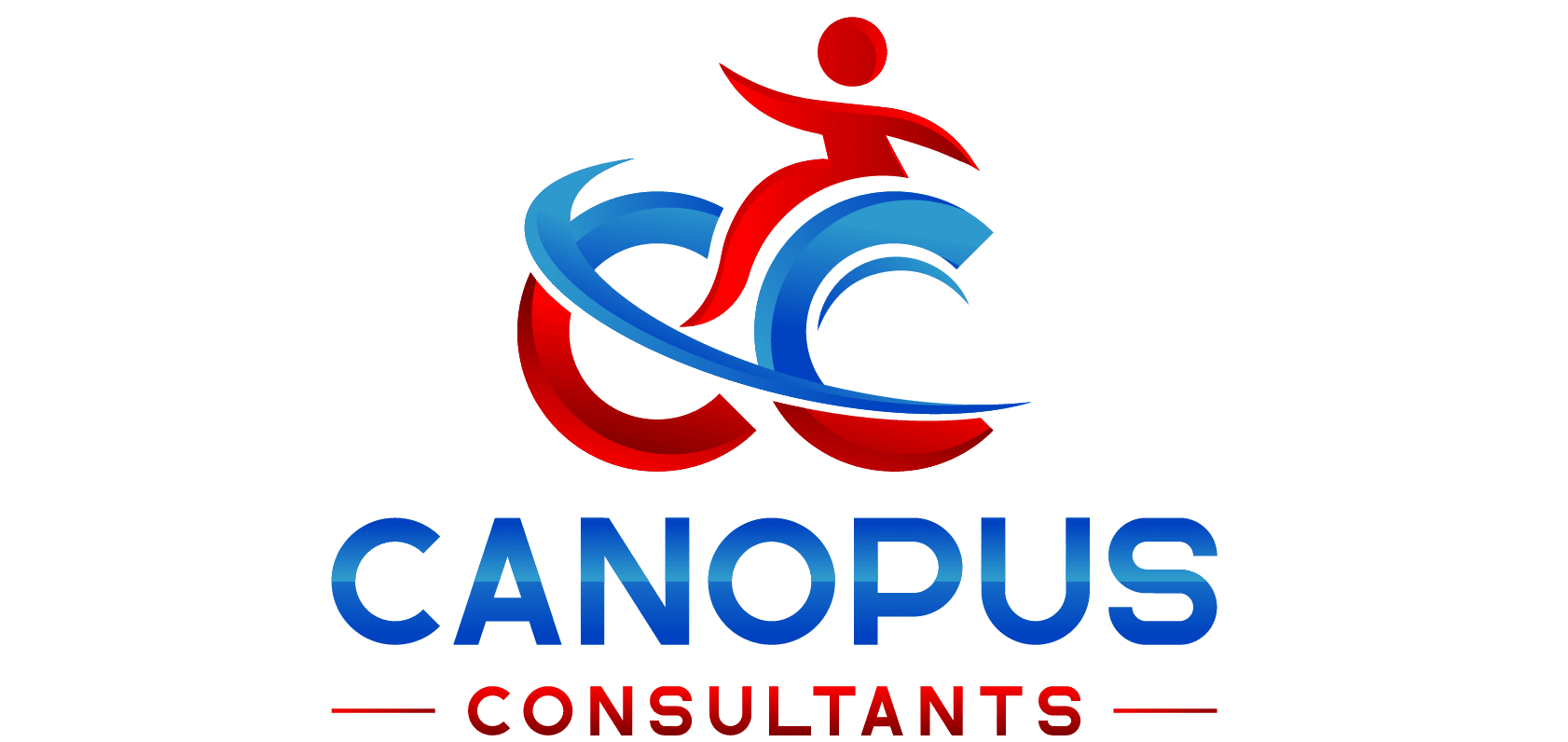
How to Better Operate Your Disability Service Business in 2024
As we move forward into 2024, it’s essential to stay updated on the latest industry trends and best practices to ensure the effectiveness and success of your business. Here are some tips to help you better operate your disability service business in 2024.
- Embrace technology
For disability service providers, embracing technology is not only beneficial but essential in delivering high-quality and efficient support to individuals with disabilities. Here are some key ways to embrace technology and better operate your disability service business
- Utilise Accessible Software and Mobile Applications
From electronic health records and scheduling tools to billing management systems and client tracking software, these technologies ensure proper organization, efficiency, and accuracy in your day-to-day tasks. Accessible mobile applications also allow for remote client monitoring, data collection, and communication, bringing convenience and responsiveness to your services.
- Integrate Assistive Technologies
As a disability service business, it is important to stay informed about the latest assistive devices and tools available. Incorporating these technologies into your services can enable your clients to overcome various limitations and engage in daily activities more effectively. Examples include mobility aids, communication devices, and adaptive computer software that can enhance accessibility and foster inclusion.
- Enhance Communication Channels
Embracing technology allows you to enhance your communication channels with clients, their families, and other stakeholders. Implementing video conferencing platforms, telehealth solutions, and secure messaging apps can facilitate real-time communication and reduce barriers to accessing your services. These technologies also provide a way to remotely consult and collaborate with other healthcare professionals, promoting holistic care for individuals with disabilities.
- Leverage Data and Analytics
Implementing a data management system allows you to track client progress, identify trends, and measure the effectiveness of your interventions. By leveraging data and analytics, you can continuously evaluate and improve your services, tailor interventions to individual needs, and demonstrate the outcomes and impact of your programs to stakeholders and funding bodies.
- Maintain Privacy and Security
Familiarize yourself with the latest data protection regulations and maintain rigorous privacy protocols. Implement secure data storage systems, encryption measures, and robust access controls to safeguard the confidentiality of client records. This enables you to not only comply with legal requirements but also build trust with your clients and stakeholders.
- Prioritize Staff Training and Development
As your disability service business moves forward into 2024, it is essential to prioritize staff training and development to ensure the continued success and effectiveness of your services. Investing in the growth and education of your staff will not only improve client outcomes but also boost staff morale and retention. Here are key strategies to prioritize staff training and development in your disability service business in 2024.
- Establish Comprehensive Training Programs
Design training modules tailored to the specific needs and responsibilities of each position within your organization. Offer initial training for new hires and ongoing professional development opportunities for existing staff to expand their expertise. Strive for a combination of theoretical knowledge, practical skills, and hands-on experiences to foster well-rounded professionals.
- Embrace Continuing Education
The disability service industry is continuously evolving, with new research and best practices emerging regularly. Encourage and support your staff in pursuing continuing education opportunities to stay abreast of the latest developments. This could include attending workshops, conferences, webinars, and industry-specific training programs. Active engagement in ongoing learning not only deepens their skill sets but also fosters critical thinking and innovation within your organization.
- Provide Regular Supervision and Feedback
Create a culture of feedback and reflection by establishing a system of regular supervision and performance evaluations. Regular check-ins allow supervisors to provide guidance, monitor progress, and identify areas for improvement. Constructive feedback and collaborative goal-setting can help your staff members grow professionally and improve the quality of care they deliver.
- Offer Leadership Development Opportunities
Identify individuals with leadership potential and provide them with opportunities to develop their managerial and decision-making abilities. Leadership programs, mentorship initiatives, and participation in professional associations can cultivate a new generation of leaders within your organization. Encouraging staff to take on leadership roles not only benefits your business but also strengthens the disability service sector as a whole.
- Foster a Learning Environment
Encourage staff members to share their expertise, experiences, and ideas through regular team meetings, case conferences, and professional development sessions. Encouraging a culture of continuous learning reinforces the idea that professional growth is embraced and valued. Consider establishing a practice of peer mentoring or implementing a knowledge-sharing platform where staff members can exchange information and resources.
- Support Work-Life Balance
Recognize that supporting your staff’s well-being is essential for their professional growth and productivity. Prioritize work-life balance by offering flexible scheduling, adequate vacation time, and wellness initiatives. Investing in employee well-being not only fosters job satisfaction but also reduces burnout and turnover rates.
- Foster Collaboration and Partnerships
As we enter 2024, it is vital for disability service businesses to recognize the value of collaboration and actively foster partnerships with various stakeholders. By working together with other organizations, professionals, and community members, you can enhance the quality of care and broaden the reach of your services. Here are key strategies to foster collaboration and partnerships in your disability service business in 2024.
- Establish Multidisciplinary Teams
Building multidisciplinary teams within your organization brings together professionals from different disciplines, such as speech therapists, occupational therapists, psychologists, and social workers. These teams promote collaboration and allow for comprehensive assessment and intervention planning. When professionals from diverse backgrounds work together, they can draw upon their collective expertise to provide holistic care tailored to the unique needs of individuals with disabilities.
- Engage with Community Organizations
Developing partnerships with community organizations is highly beneficial for disability service businesses. Identify and engage with local organizations that share similar goals, such as disability advocacy groups, community centers, educational institutions, and employment agencies. Collaborating with these organizations can provide opportunities for knowledge exchange, resource sharing, and coordinated efforts to address community needs.
- Collaborate with Healthcare Professionals
Engaging with healthcare professionals outside of your organization, such as physicians, nurses, and specialists, can enrich your services and improve client outcomes. Establish collaborative relationships with medical professionals to ensure coordinated care and exchange vital information. Regular communication, case conferences, and joint assessments can lead to more accurate diagnoses, targeted interventions, and better overall health management.
- Partner with Technology Providers
Incorporating technology in your disability service business can have transformative effects. Partnering with technology providers specializing in assistive tools and software can help you stay at the forefront of technological advancements. Work together with these providers to develop customized solutions tailored to the unique needs of your clients.
- Collaborate with Government Agencies and Funders
Developing partnerships with government agencies and funders strengthens both your financial stability and your connections to the broader disability service sector. Engage with government agencies responsible for disability services to stay informed about policy changes, funding opportunities, and best practice guidelines. Collaborating with funders ensures your organization has the necessary resources to deliver high-quality services.
- Support Peer Networking and Collaboration
Encourage your staff members to participate in professional networks and associations within the disability service field. Supporting peer networking activities, such as conferences, forums, and online communities, fosters knowledge-sharing and collaboration among professionals. Peer networking provides valuable opportunities to learn from others’ experiences, share best practices, and stay informed about emerging trends and research.
- Continuously Evaluate and Improve Services
As a disability service business, providing high-quality support and care to individuals with disabilities should be at the forefront of your operations. To ensure your services remain effective and responsive to evolving client needs, it is crucial to continuously evaluate and improve your services. By adopting a proactive approach and embracing a culture of continuous improvement, your disability service business can thrive in 2024. Here are key strategies to continuously evaluate and improve your services.
Regularly Assess Client Satisfaction
Regularly assessing client satisfaction is essential in understanding how well your services meet client expectations and needs. Develop a system for gathering feedback, such as surveys, focus groups, or individual interviews. Analyze the feedback received to identify areas for improvement and address any potential gaps in service provision.
- Collect and Analyse Outcome Data
Collecting and analysing outcome data allows you to measure the effectiveness of your services and identify areas for improvement. Define key performance indicators (KPIs) related to client outcomes and track them consistently. Compare your data against benchmarks and best practices to gain insights into areas where your services excel or require enhancement.
- Seek Feedback from Staff Members
Your staff members are on the front lines of service delivery and possess valuable insights into the strengths and weaknesses of your operations. Regularly seek feedback from your staff through surveys, focus groups, or one-on-one meetings. Encourage open and honest communication, and ensure staff members feel comfortable sharing their perspectives and suggestions for improvement.
- Engage in Peer Review and Collaboration
Seek opportunities to engage in peer review and collaboration with other disability service providers. Establishing partnerships with similar organizations not only facilitates knowledge-sharing but also enables benchmarking and the exchange of best practices. Participate in industry forums, conferences, and networking events to learn from others’ experiences and gain fresh insights.
- Invest in Professional Development
Investing in the professional development of your staff members is instrumental in improving service delivery. Offer ongoing training and education to enhance their skills, knowledge, and expertise. Stay updated on best practices, research findings, and emerging trends in the disability field to ensure your services remain current and evidence-based. Encourage staff members to pursue relevant certifications, attend workshops, and engage in continuing education opportunities.
- Establish Quality Improvement Processes
Establishing quality improvement processes is vital for achieving continuous improvement in your services. Implement regular audits, self-assessments, and internal reviews to monitor adherence to best practices, policies, and standards. Establish a quality improvement team or committee responsible for overseeing improvement initiatives and regularly assessing the effectiveness of implemented changes.
- Stay Informed and Advocate
Keeping up-to-date with the latest developments, policies, and best practices in the disability sector enables you to provide high-quality care and services. Advocating for the rights of individuals with disabilities demonstrates your commitment to creating an inclusive and equitable society. Here are key strategies for staying informed and advocating in the disability sector.
- Regularly Review Industry Publications and Research
Staying current on industry publications and research is essential to staying informed on the latest developments and emerging trends in the disability sector. Subscribe to disability-related publications, research journals, and newsletters to receive updates on the latest news, policies, and best practices. Follow relevant research institutions, advocacy organizations, and government bodies on social media to stay informed of their findings and insights.
- Attend Industry Conferences and Webinars
Attending industry conferences and webinars provides valuable opportunities to network with peers and deepen your understanding of the disability sector. Participate in conferences, workshops, and webinars to learn about the latest research, industry trends, and best practices. Engage with other industry professionals to share your experiences, insights, and challenges.
- Engage in Consultations with Government Agencies
Engage in consultations with government agencies on disability-related policies, funding, and program development to stay informed and contribute your insights. Participating in consultations provides you with an opportunity to provide feedback and input on proposals and policies that impact your business and clients.
- Participate in Disability Advocacy Organizations
Joining a disability advocacy organization enables you to support the rights of individuals with disabilities and stay informed on issues related to disability policy. Participating in disability advocacy organizations also provides you with opportunities to network with other disability service providers, engage in advocacy campaigns, and collaborate on initiatives to improve the lives of individuals with disabilities.
- Develop and Implement Advocacy Initiatives
Developing and implementing advocacy initiatives in your business enables you to actively support the needs of individuals with disabilities while also promoting your services and expertise. Consider developing initiatives that focus on raising awareness of disability issues in local communities, creating public education campaigns, or partnering with local advocates to promote disability rights.
- Foster a Culture of Inclusion and Equity
Fostering a culture of inclusion and equity within your business is essential for creating an environment that respects and values individuals with disabilities. Ensure that your staff are trained on disability-related topics, encourage diversity in hiring and staff development, and provide accessible environments and technology for clients.
- March 15, 2024
- By: Canopus Consultants
- Categories: Blog
- no comments
- Tags: How to get NDIS certification in Melbourne, NDIS Certification, ndis certification in Melbourne


